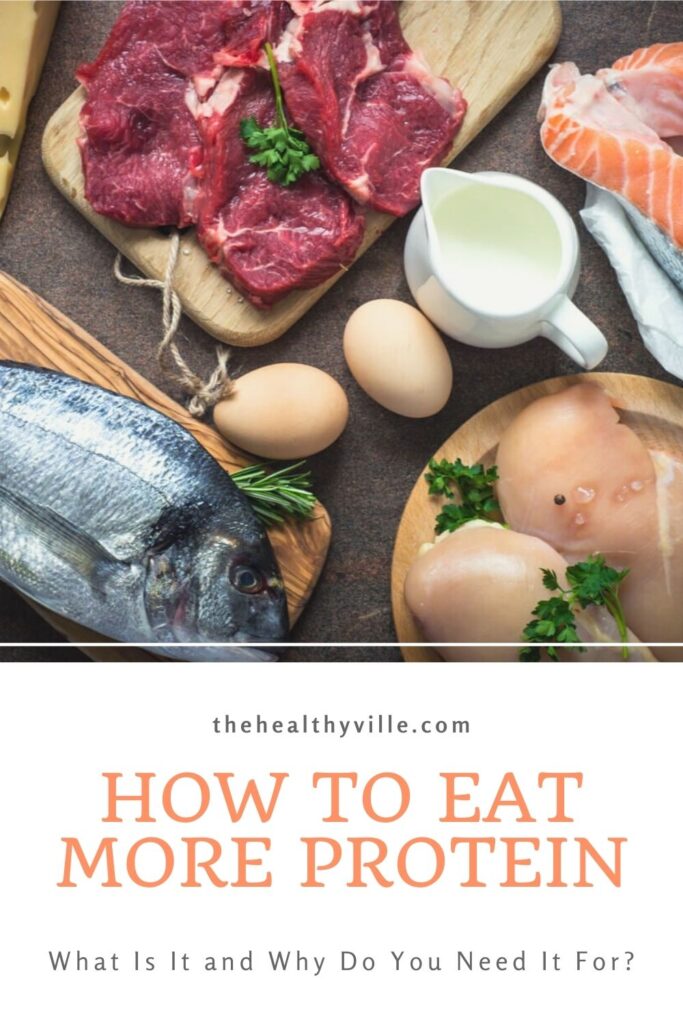How to eat more protein? It is necessary to consume it on a daily basis. We tell you why and what specifically its functions are. Do not miss it.
It is important that you know what proteins are. These nutrients you get through diet, are essential and fulfill many functions in the body.
Next we are going to tell you in detail everything you need to know about them. Once you are clear about its health implications, it is likely that you will focus more on meeting the demands of this nutrient.
Macronutrients
There are 3 types of macronutrients or immediate principles: proteins, fats and carbohydrates. They receive this name because you can find them in high amounts in food, which allows satisfying the body’s energy needs.
The specific functions of proteins are diverse. You can find them in animal and plant foods and are part of cellular and tissue structures. Guaranteeing a correct supply of the same allows, therefore, to prevent the loss of muscle mass.
In the current scientific literature, statements are that not ingesting the necessary proteins is one of the risk factors for the appearance of sarcopenia. This disease occurs with the progressive destruction of muscle and with the loss of strength throughout the body.
Furthermore, proteins have many other physiological and anatomical implications. They can act as enzymes, catalyzing internal reactions in cells and the internal environment. This would be an acceleration of processes that normally slow down. It is even possible to transform it into glucose at the liver level to produce energy.
How to eat more protein and why do you need to?
A protein deficiency can lead to disease. Until recently it was ensured that an excess also did. However, nowadays it is more concerned to fall short than to go over when talking about protein intake.
Despite the fact that proteins in the body are capable of carrying out very diverse tasks, their most relevant function is structural. In the case of athletes, guaranteeing the right amount is essential to allow muscle growth.
Although recommendations in sedentary individuals an intake of 1.2 grams of nutrient per kilogram of weight per day, in athletes this consumption is close to 2 grams. A recent review of studies published in the Journal of the International Society of Sports Nutrition even recommends increasing intake to 3 grams per kilogram of weight per day in individuals suffering from high muscle wasting.
But not only in the framework of sport is it necessary to monitor consumption. The protein helps prevent and reduce the processes of cachexia associated with cancer, as experts say. This condition consists of a progressive loss of weight and muscle that increases the risk of death in cancer patients.
Does its consumption affect kidney function?
One of the arguments used to limit the protein intake was that its excessive consumption could cause liver and kidney damage in the medium term. For this reason, more than 0.8 grams of nutrient per kilogram of weight were not recommended in people with a high degree of sedentary lifestyle.
However, a review published in 2017 analyzed the results of several investigations in which high doses of dietary protein were administered over an extended period of time. The results of most of them were that no damage was found on kidney function. For this reason, high protein diets are considered safe today.
Not all proteins are the same
Now you know the importance of a correct protein consumption. However, not all those provided through diet have the same quality. There are two fundamental classes, according to their origin: animals and vegetables.
The former are characterized by presenting a higher biological value. This means that they contain all the essential amino acids for the human body (those that the body is not capable of producing) and enjoy an acceptable level of digestibility.
In contrast, plant proteins are usually lacking in some essential amino acid. Furthermore, its digestibility is lower, which conditions its absorption. They are also necessary in a varied diet, but recommendations are to guarantee that at least 50% of the proteins in the diet are of animal origin.
In order for you to understand the importance of essential amino acids, we will highlight that some of them play a role in the maintenance of muscle mass. This is the case of leucine. It is capable of stimulating the anabolic pathways of the body, increasing the formation of lean tissue.
Recent research published ensures that supplementation with this amino acid in isolation is able to prevent muscle loss in the elderly. In any case, food will always be the best way to incorporate it.
Be sure to introduce protein in sufficient amounts into the diet
We have seen the importance of protein in food. A deficient contribution of this nutrient will condition muscular health. It may affect other physiological reactions, such as the formation of certain hormones.
To make sure that you consume the amount of protein you need, it is key that you analyze your diet. If a food of animal origin appears at each main meal, it is unlikely that you will be lacking. In any case, try to guarantee the presence of vegetable proteins also in snacks.
Until a few years ago, the correct thing was to eat 0.8 grams of protein per kilogram of body weight in a day. But currently, the recommendation has been increased. Do not neglect consumption and, in the long term, your health will benefit.
Don’t forget to SHARE the info on how to eat more protein with your friends and family on your social networks!

